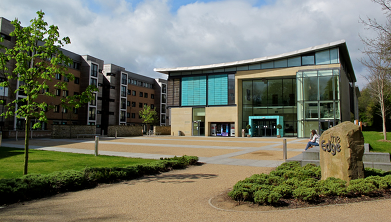Earlier in the year (2016), we issued a special call for papers, inviting others to join LDNA panel sessions at the Sheffield Digital Humanities Congress. We were delighted by the responses, and further delighted that the full DHC programme includes plenty of other material relevant to our text analytics’ interests–and a noticeable body of book historical input too.
As a special privilege for those who follow the LDNA blog, here are two bonus abstracts outlining our conception of each LDNA panel:
TA 1: Between numbers and words
Session 4, Friday 9 September
ft. Hine, Shute, Siirtola et al.
Digitisation of texts facilitates kinds of statistical analysis that were previously difficult and perhaps impossible for humans to carry out. This series of papers explores the interface between statistics and close reading, teasing out how these modes of textual analysis can be applied jointly to explore and analyse the material, lexical and semantic form of constitutent texts. We discuss the use of quantitative analysis to reassess hypotheses about the work of compositors in fifteenth-century printing. We scrutinise a blueprint for moving between statistical data and words-in-context within collections too big for human reading (with special attention to concept formation). Lastly, we demonstrate how one newly-enhanced visualisation tool assists exploratory analysis to generate insights about genre and social variables in digital text collections including early modern correspondence and international Englishes.
TA 2: Identifying complex meanings in historical texts
Session 7, Friday 9 September
ft. Mehl, Recchia, Makela, et al.
With recent advances in computational tools and techniques, researchers are moving closer to the goal of identifying and describing complex meanings—semantic, discursive, social, and otherwise—in historical texts. This session approaches that goal from multiple angles. We discuss semantic meaning in terms of distributional semantic techniques, which connect the study of meaning in the humanities with the quantitative study of language in computational linguistics. We discuss discursive meaning via topic modelling techniques, and also explore the theoretical space between distributional semantics and topic modelling. Finally, we discuss social and historical meanings by looking at possibilities for analysing extra-linguistic contexts alongside linguistic data, within carefully annotated, structured data sets.
If that’s whet your appetite, you will find full abstracts for each paper–and for every paper in the Congress–on the main DHC site.
Last registration date is 7 September.
